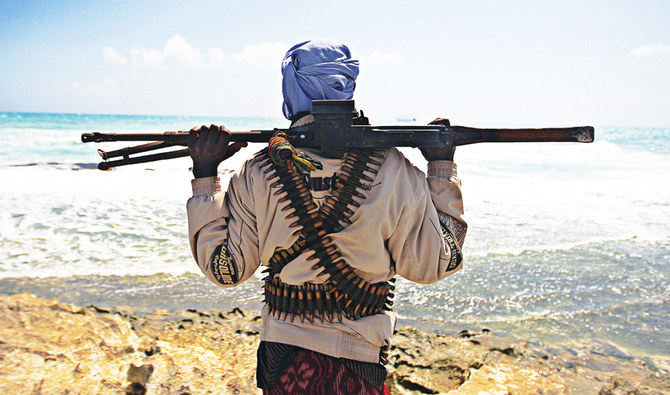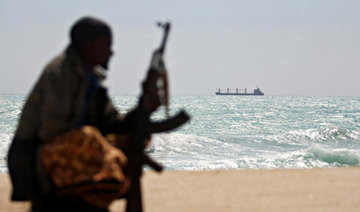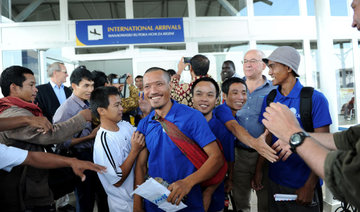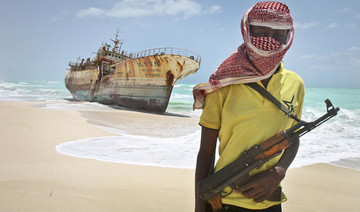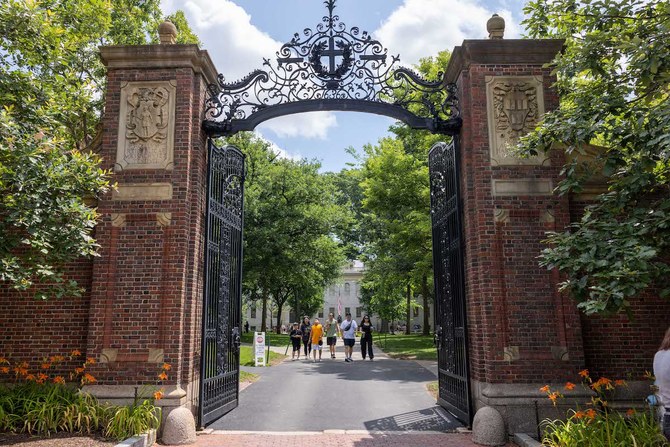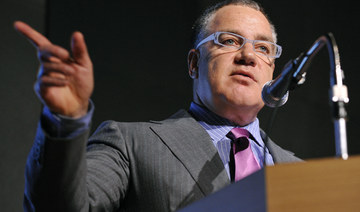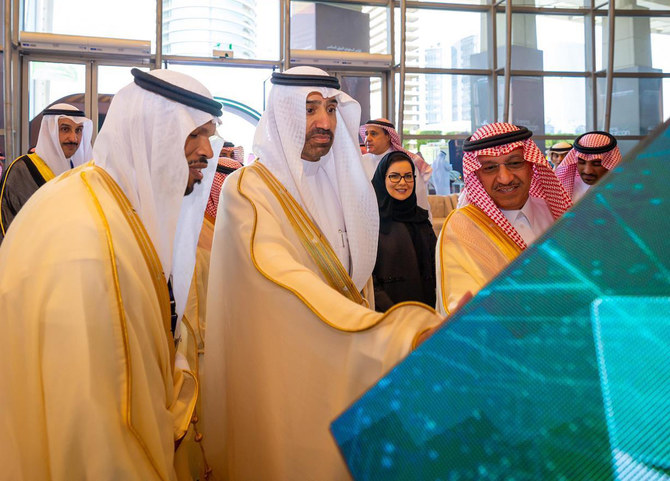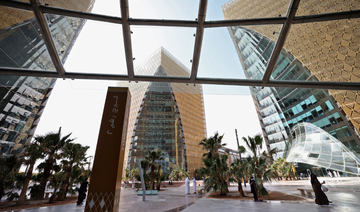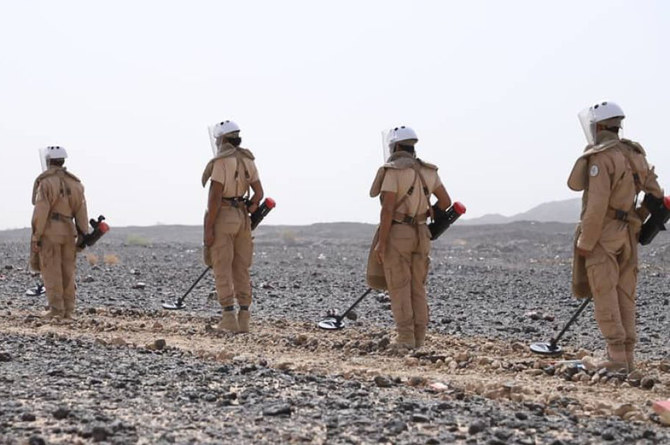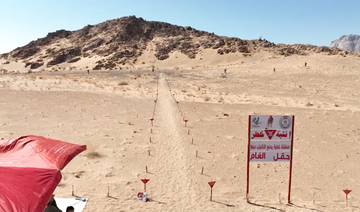DUBAI: A decade ago, during the peak years of the Somali piracy crisis, the waters of the Arabian Gulf faced frequent threats from armed criminals at sea, who disrupted the economy by terrorizing shipping routes.
But experts say regional action — with Saudi Arabia at the forefront — has meant crimes on the high seas have dipped to some of the lowest records in years.
A five-year stretch between 2007 and 2012 saw Somalia’s lawless coastline at the epicenter of global maritime crime. Numerous kidnappings and hijackings threatened vital maritime trade routes.
Every year, tens of thousands of vessels transit through the Gulf of Aden, which leads to the Suez Canal, amounting to roughly 10 percent of global trade flows.
Pirates terrorized vessels on some of the world’s busiest shipping lanes, with almost daily incidents across the Arabian Sea, the Gulf of Aden and the Red Sea, causing an $18 billion loss to the global economy, according to the World Bank. In 2010 alone, there were 489 instances of piracy, according to the International Maritime Bureau (IMB).
Enter the Combined Maritime Forces (CMF), an anti-piracy coalition of 33 nations from all over the world — including five Gulf states — in which Saudi Arabia is a key player. Established some years prior, the CMF stepped up its operations following a massive global anti-piracy effort in 2008.
That year, the UN Security Council also urged countries to use “all necessary means” to defeat piracy, while encouraging them to patrol the Somali coastline, particularly the Gulf of Aden.

The Gulf Cooperation Council (GCC) has played a huge part in three CMF task forces: Combined Task Force (CTF) 150, which conducts counterterrorism and maritime security operations in the Indian Ocean, the Gulf of Aden, the Red Sea, the Arabian Sea and the Gulf of Oman; CTF 151, which conducts counterpiracy operations; and CTF 152, which conducts maritime security operations in the Arabian Gulf.
Lt. Commander Ian Miller of CTF 152 said Saudi Arabia has been instrumental in tackling maritime crimes across the Arabian Gulf, while GCC countries have collectively taken a leadership role in investing in long-term, onshore solutions in order to permanently end piracy in the Horn of Africa.
“The GCC countries play a significant role in the CMF,” Miller told Arab News. The Saudi military has “supplied personnel and assets in all three task forces,” and has “commanded CTF 150 once and CTF 152 on two separate occasions,” he said. This has led to “a number of notable successes,” particularly for CTF 150 operations, including “seizure and destruction of several thousand tons of hashish and heroin,” he added.
At the height of piracy around the Horn of Africa, the impact on the Gulf was profound. During that time, more than a dozen ships that were either owned, managed or flagged by GCC countries were attacked or hijacked by Somali pirates, including the 1,090-foot, Saudi-owned crude super-tanker MV Sirius Star.
It was hijacked in November 2008 more than 450 nautical miles off the coast of Kenya as it was en route from Saudi Arabia to the US via the Cape of Good Hope.
The super-tanker was transporting 2 million barrels of oil, and was only released after a multimillion-dollar ransom payment.
In March 2010, Saudi tanker Al-Nisr Al-Saudi was hijacked in the Gulf of Aden. Pirates held its Greek captain and its 13 Sri Lankan crew members hostage until the ship was released some eight months later, after another hefty ransom was reportedly paid.
There have also been unsuccessful attempts by pirates to hijack GCC ships, including the Saudi-owned chemical tanker Al-Balad. Such attacks led to NATO naval forces guarding Somalia’s coastline as part of the offshore military response.
A number of nations, including Saudi Arabia, sent ships to help secure the massive area in which pirates operate.
At the height of Somali piracy in January 2011, 736 hostages and 32 ships were being held by pirates, said Miller. By October 2016, no hostages or ships were being held.
The International Maritime Organization (IMO) said there has been a lot of work to address piracy off the coast of Somalia, partly through the implementation of the 2009 Djibouti Code of Conduct and the Jeddah Amendment, which was adopted by countries in the Western Indian Ocean and the Gulf of Aden to combat piracy and armed robbery against ships operating in that region. The IMO said Saudi Arabia has been key in pushing forward the Djibouti Code of Conduct and the Jeddah Amendment.
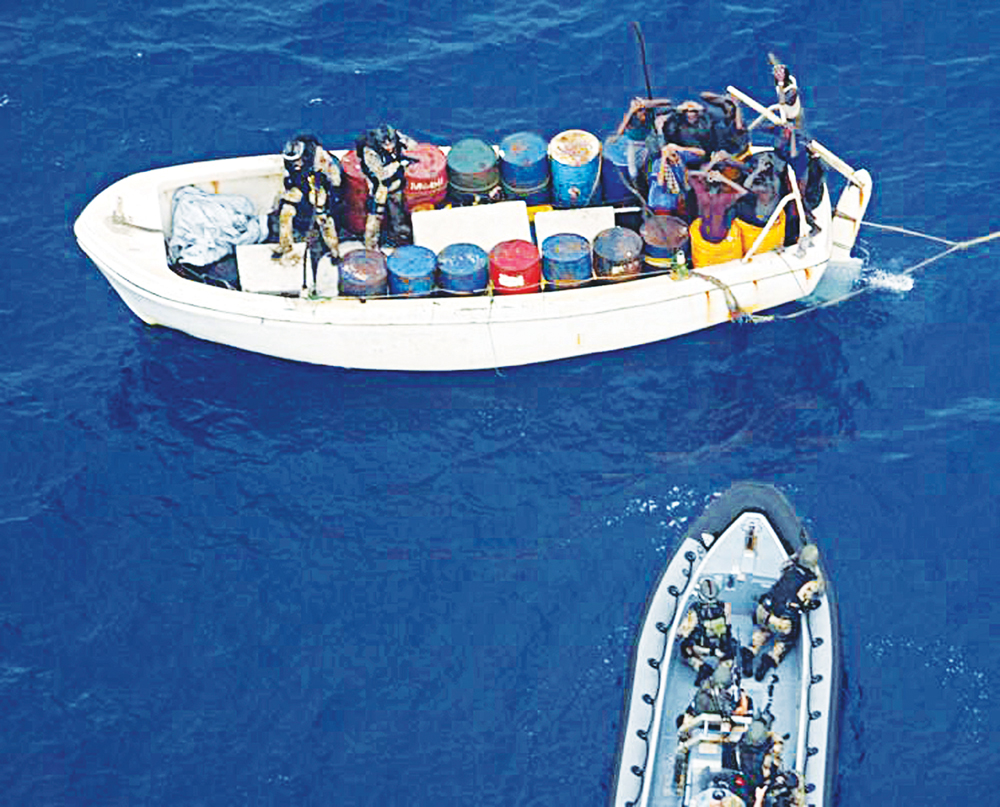
“The Djibouti Code of Conduct, which has been instrumental in repressing piracy and armed robbery against ships in the Western Indian Ocean and the Gulf of Aden, saw its scope significantly broadened to cover other illicit maritime activities following a 2017 meeting hosted in Jeddah, which adopted a revised code of conduct known as the Jeddah Amendment,” an IMO spokesperson told Arab News.
Signatories to the amendment, which calls on member states to cooperate against transnational organized maritime crime, include Saudi Arabia, Djibouti, Ethiopia, Jordan, Kenya, Madagascar, the Maldives, Mauritius, Mozambique, Oman, the Seychelles, Somalia, the UAE and Yemen.
Following the crucial Jeddah meeting, participatory states agreed to work together, with support from the IMO and other stakeholders, to build national and regional capacity to address wider maritime security issues.
“Several Gulf states signed the Jeddah Amendment, committing to suppress illicit maritime acts, and the number of incidents in the region and off the coast of Somalia has decreased since piracy was at its peak in 2010-2011,” the IMO said. “Action by all countries, as well as ships applying best management practices, have certainly helped.”
The IMB recorded 180 incidents in 2017, down from 489 in 2010 and the lowest annual number since 1995. The last reported incident of piracy was in March 2018, when four suspected pirates approached a vessel. But after the vessel increased its speed, they stopped their chase.
Although current piracy levels remain low, Miller said the battle has not yet been won, adding: “It’s understood that piracy remains repressed, but it isn’t eliminated.”
Michiel Hijmans, general manager of the Maritime Security Alliance, which provides non-violent legal solutions to combat hijacking and stowaways, also said maritime crimes in the region are now diminished.
He said as long as the Gulf of Aden is well protected by counterpiracy units, the threat will stay low. “In the future, it could easily rise if countries step down on their efforts,” he added.
Hijmans stressed the need for more countries to build up their maritime capacity and tackle the root causes of piracy.
“A comprehensive, lasting piracy solution is something the whole world should be looking after, but it isn’t very realistic that such a solution will be found on short notice,” he said. “Countries have many other priorities to look after. We’re good at fighting the symptoms, but tackling the root causes of piracy — like failed states, famine and organized crime — is another issue.”



